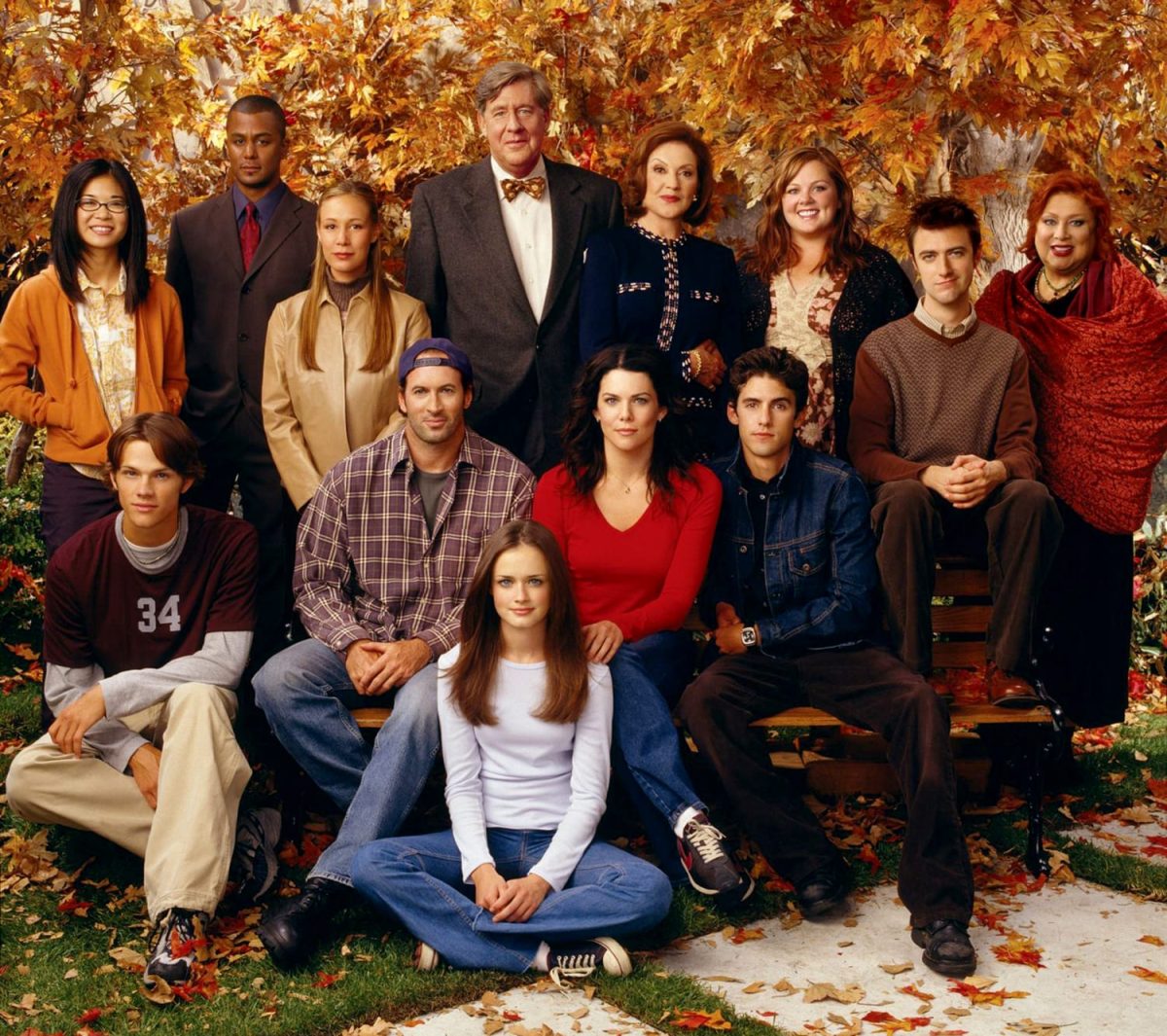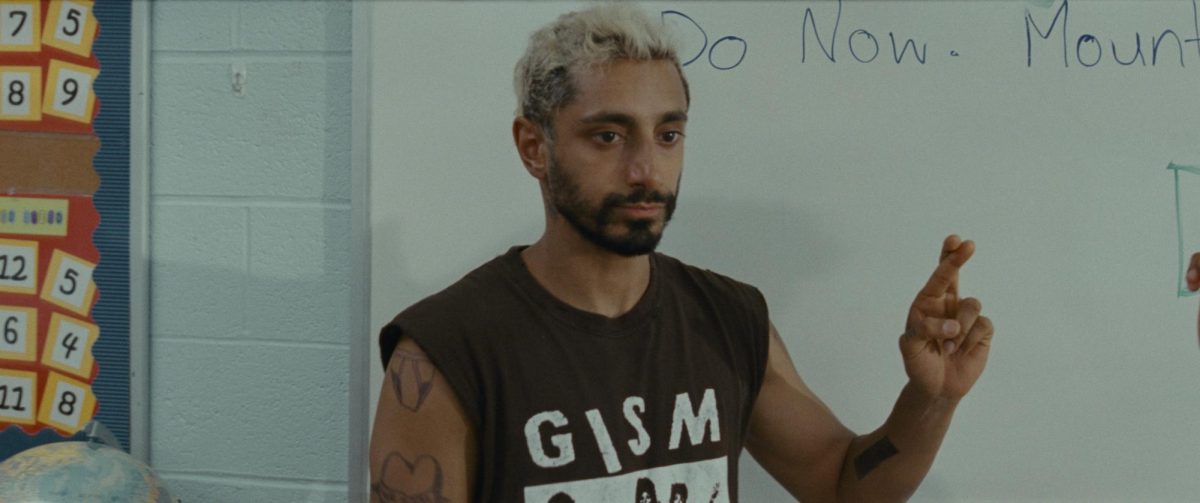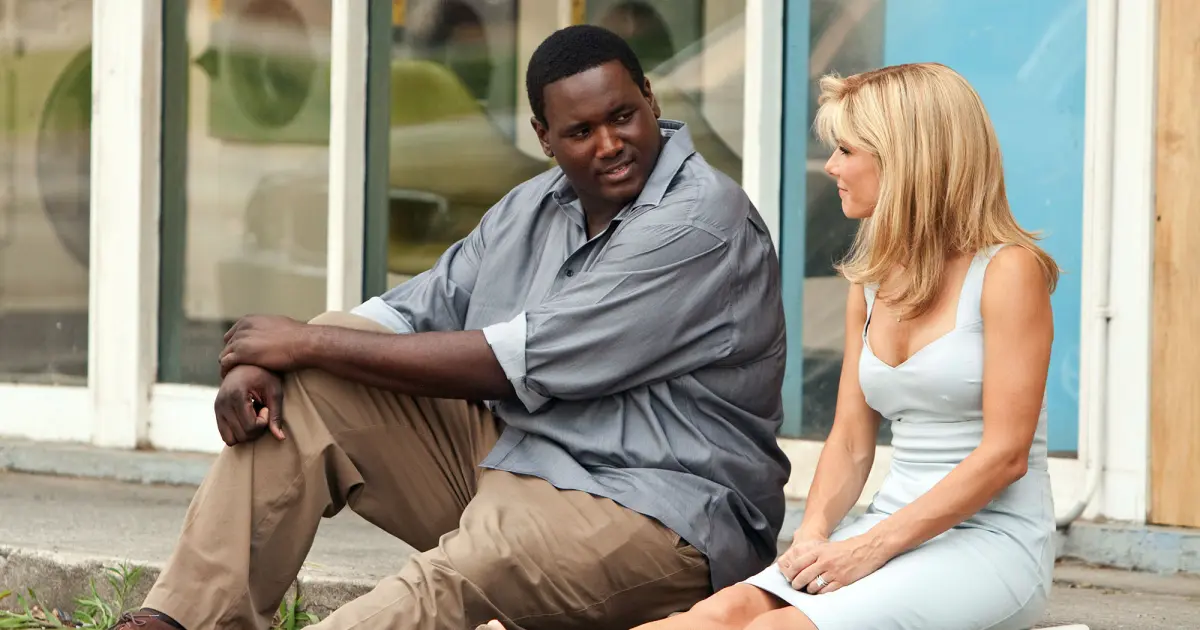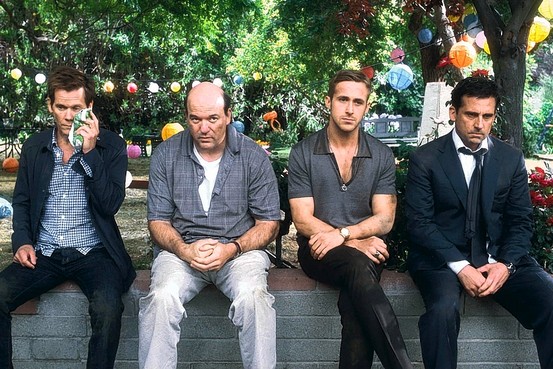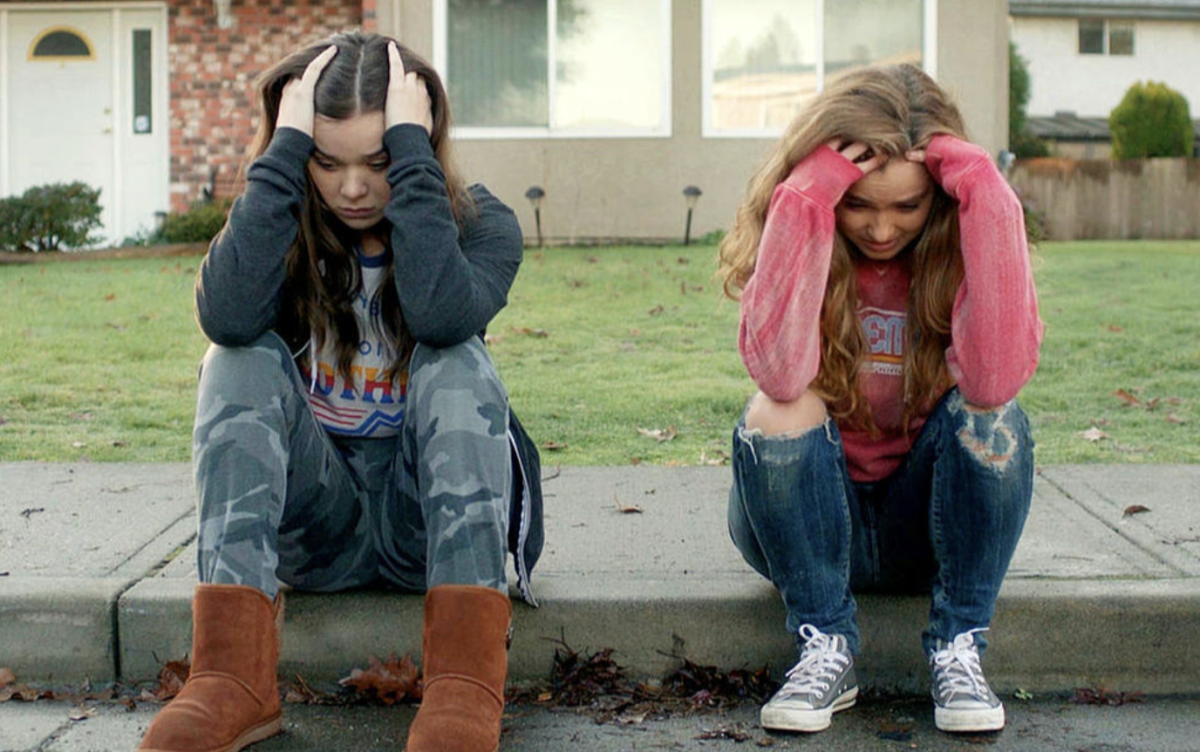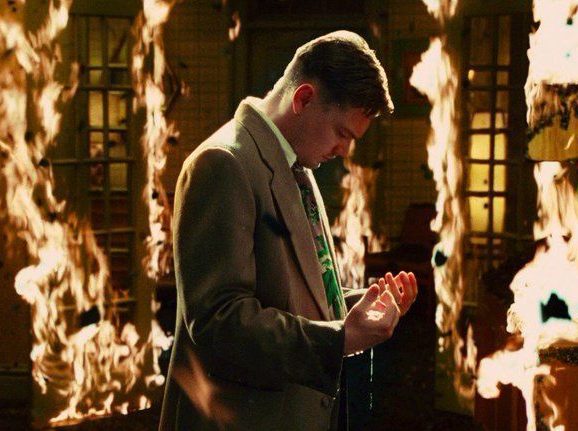
Shutter Island, a psychological thriller directed by Martin Scorsese, was released in 2010 and garnered almost 295 million dollars worldwide in gross box office sales. Scorsese’s other notable works include Goodfellas and Taxi Driver.
Headlined by Leonardo DiCaprio, Shutter Island focuses on U.S. Marshal Edward “Teddy” Daniels. Teddy is assigned to a case on Ashecliffe, a federal penitentiary for the mentally insane on a remote island in Boston Harbor called Shutter Island. A patient named Rachel Solando escaped her unescapable cell and is now roaming the island. With a storm coming, Teddy and his new partner, U.S. Marshal Chuck Aule, are called to retrieve Rachel, as the island is naturally spooky with cliffs and forests and, of course, the incoming terror of the storm. The marshals must brave the environment and the cryptic medical staff, including the off-putting Dr. Crawley, who never gives a straight or full answer to anything. As time passes and Rachel is found by island officials, Teddy wonders what the purpose is as he discovers that the workers experiment on the patients’ minds. What can he do? Shutter Island takes on a man’s meaning, drive, and strength of mind.
Teddy is not a marshal anymore but a psychotic patient at Ashecliffe. He is convinced he is still a marshal when he is truly a man who murdered his bipolar wife after she drowned their children. He became bipolar and aggressive, resulting in his rehabilitation, which never worked. Shutter Island beautifully captures a man’s struggle to accept reality and break the cycle of his own mind. Teddy’s new “partner,” Chuck Aule, is really the head psychiatrist for Teddy, yet acts as his fellow marshal to please the alternate reality in his patient’s mind. Chuck must perfectly fit the role to not disturb Teddy and potentially send him on a rampage if his true identity is revealed too soon or too suddenly. I adore Shutter Island and find it one of DiCaprio’s best works. The movie’s true beauty is the way they reveal Teddy’s true self, as it is done through a plot twist at the very end. In the film, you, the viewer, are convinced that Teddy is a marshal, Chuck is his partner, and they are just on a mission at this island asylum. When it is revealed, it all clicks, and you have to pause the movie and sit there contemplating what you just witnessed, leading you to watch it a second time now that you understand. I personally stared at the credits for ten minutes, trying to think how I had just been duped for 2 hours into believing Teddy’s side. If you want a crime thriller, a mind-messer, and the ultimate satisfaction of witnessing a masterpiece, check out one of the best neo-noir movies you could ever choose.
A patient in a mental asylum on Shutter Island has escaped the facilities, running around loose. Teddy and his fellow marshal Chuck must find them, interrogating medical officials and searching every jungle and enclave of the island. After a bit, something seems fishy. The staff at Ashecliffe are not very cooperative in the investigation and just unordinary. Teddy suffers multiple flashbacks, hinting at PTSD from his time as a soldier in WWII. As of now, it isn’t clear what the point is. Ashecliffe is a scary and fortified psychotic prison, so why are two U.S. Marshals who obviously don’t deal with these situations on this freaky island looking for one prisoner? How did she escape anyway? As a result, the movie has a grip on its audience and is very compelling at this point. The viewers sit down to watch one of the most versatile and intriguing actors ever, DiCaprio, and they want to see what he must do in this movie to accomplish the proposed goal. Is it really just about retrieving the murderess? Or are we witnessing the finesse and mastery of exceptional storytelling from Scorsese?
So, we still wonder: “Where is this heading?” The writers knit it together as Teddy seems to be breaking down. He isn’t some strong-headed marshal at peace in his mind. This investigation is pulling him apart, and his fears are fully displayed. An excellent job is done as the audience is told the real-life lesson that toughness is often a facade, and even the strongest people can be torn apart. Teddy comes across a woman in the prison who claims to be the murderess he was brought to search for. So, where is the missing prisoner? Ashecliffe is housing 67 psychos, yet the marshall can only count 66, resulting in someone missing. However, one of the doctors, Crawley, tells him the murderess never existed. Confused, he goes with Chuck to a lighthouse where he believes she may be contained but is subsequently separated from his partner. Everyone tries to convince him Chuck never existed, causing him to think that his partner is being held at the lighthouse where they perform brain experiments on patients. Through a series of struggles with staff trying to stop him, he makes it to the top, where he again meets Crawley.
The doctor reveals that Teddy is the prisoner and is actually Andrew Laeddis (a hidden anagram of the alter ego Edward Daniels), a former U.S. Marshal who murdered his wife due to her psychotics, which included burning their home and killing their little children. A combination of his war trauma and his guilt led to his own insanity, resulting in a stay at Shutter Island. 2 years later, his mind still throws him in a loop, convincing himself he is Teddy and is on the island to retrieve this missing prisoner, who also drowned her children, showing he is connecting some parts of his past life. Due to his aggression, the staff follows along in the roleplay, and each time, they try to reveal at the end his real persona in hopes he realizes his insanity and becomes a typical patient. However, each time they fail, Dr. Sheehan must continue to act as his government partner. This time, it appears they have succeeded as Andrew faints at the realization and wakes up recounting the truth. He is notified that he will have to be lobotomized if he regresses into the cycle again, which he has done 9 months prior, having done this same thing and realizing his true self before restarting. Shockingly, Andrew looks at Sheehan and calls him Chuck again, saying they must leave the island. He is carried away by medical staff for his procedure when he asks Sheehan if it is better “to live as a monster or to die as a good man.”
I find the movie quite remarkable and easily rewatchable. You must rewatch it, as this late realization of the plot and the film’s deception has confused your whole understanding, making the second watch even better now that you can appreciate the mastery of weaving together this false reality and then cutting it open in one big moment.
What I found most admirable was how the writers push the narrative in your mind that Teddy is just your ordinary, traumatized, stern government official. Every trouble he encounters on his journey and how he deals with it makes sense! You truly believe he is just searching for the 67th patient, never suspecting it could be him. Shutter Island touches on the topic of personal strength. Teddy seems well put together, minus the sea sickness, just a man on a mission. His WWII memories are shown through harrowing flashbacks, moments sure to make the witness sick. As he is continually confused on the island and what his true motive is, his spirit and sense of identity are struck down. Why does his wife keep appearing before him in mini-hallucinations? Wait, why does he keep getting these after he takes the medical staff’s medicine and their cigarettes and eats their food? He questions everything, becoming so paranoid you think he will break. The strongest people sometimes turn out to be the weakest, putting forward an image to hide what’s inside. It is talked about a lot and in many cases, but Scorsese did a fantastic job catching this societal dilemma on the big screen.
After the big twist, after we finally learn what is really going on, we are thrown in for another loop. With Andrew sitting next to Dr. Sheehan, our protagonist reveals that he is back in the cycle. The chill in the air of your living room sits for minutes when you hear “Chuck” uttered once again. Change may come, but it is often not welcomed. For better or worse, Andrew is Teddy again, a U.S. Marshal, a man on a mission. Nothing can stand in his way, even a concoction of deadly illnesses residing in his brain, sure to keep him captive in this terrifying wonderland as long as possible. There are a lot of good movies out there. But the mind-twist, crime movies always seem to move me the most, leaving me sitting on the floor trying to piece together what I just watched. I first encountered this with Shutter Island and fell in love with it. Upon the second watch, it felt so cool to see all the little hints I missed that led to Teddy being Andrew, so it was still spectacular and had not lost its marvel. It was nothing short of impressive, rivaling even that of Se7en, potentially the best movie of this genre and probably in my top 5 movies. So, yes. DiCaprio came and delivered, and so did the whole team. Are the best movies those that reveal the point immediately so the viewer can savor seeing how things unfold throughout the film or those that hide it, switch it, or never show it? For many, the latter is preferred, crime and mystery movies beloved by all ages.

